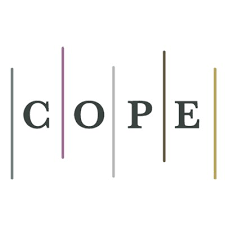Spending Allocation, Capacity and Village-Owned Enterprises: Does it Matter to Village Income in Indonesia?
DOI:
https://doi.org/10.52547/ijimes.2.1.65DOR:
https://dorl.net/dor/20.1001.1.27832678.2022.2.1.5.2Keywords:
Spending Allocation, Income, village device capacityAbstract
Purpose: This paper aims to analyze the influence of village spending, village device capacity, and village-owned enterprise on village income. The data source is The Village Potential Statistics 2018, testing was conducted on 5,791 villages in Indonesia.
Methodology: The methodology used in this study is ordinary least square regression analysis by comparing two regression models both Java Island and outside Java Island.
Findings: The results of the study found that either Javanese models or outside Javanese models showed spending on government administration, development, empowerment, and development had a positive and significant effect on village income levels. The number of village apparatus and village-owned enterprises units has a positive and significant effect on the village income level while in outside Java does not. Meanwhile, the education level of head of village, the education level of secretary had no influence on the village's income level in Java Island. Whereas in Outside Java, the level of education of the village head, the number of village apparatus also positively affects the village income level. Then, the education level of the village secretary, and the village-owned enterprises outside Java Island did not have a significant influence on the village income level.
Originality/Value: This paper have a depth analyze to village income level in Indonesia with compared between Java Island and Outside Java Island.
Downloads
References
Law Number 6 Year 2014 on the Village
Antlöv, H., Wetterberg, A., & Dharmawan, L. (2016). Village Governance, Community Life, and the 2014 Village Law in Indonesia. Bulletin of Indonesian Economic Studies, 52(2), 161–183. https://doi.org/10.1080/00074918.2015.1129047
Alam, M. S., Ulwiya, A., & Nurhidayah, M. (2018). Pemanfaatan Alokasi Dana Desa Terhadap Pembangunan Perdesaan ( Studi Kasus Di Tuntang Kecamatan Tuntang Kabupaten Semarang ). Jurnal Ilmu Ekonomi Dan Pembangunan, 18(2), 193–200.
Sandi Kurniawan, T., Wulan Sari, D., & Reni Irmawati, D. (2018). Indonesian Treasury Review. Jurnal Perbendaharaan, Keuangan Negara Dan Kebijakan Publik, 3(4), 330–346. https://doi.org/https://doi.org/10.33105/itrev.v5i3
Darwanis, D., & Saputra, R. (2014). Pengaruh Belanja Modal terhadap Pendapatan Asli Daerah dan Dampaknya Pada Kinerja Keuangan Pemerintah Daerah (Studi Empiris Pada Pemerintah Daerah Kabupaten/Kota Di Provinsi Aceh). Jurnal Dinamika Akuntansi Dan Bisnis, 1(2), 183–199. https://doi.org/10.24815/jdab.v1i2.3628
Ahmad, F. (2017). Pengaruh Belanja Modal Dan Alokasi Dana Desa Terhadap Kemandirian Dan Kinerja Keuangan Desa Di Kabupaten Jember. In Thesis.
Rohmani, S. A., Rustiadi, E., Firdaus, M., & Sudaryanto, T. (2015). DAMPAK MODAL SOSIAL DALAM PENGELOLAAN IRIGASI TERHADAP KESEJAHTERAAN PETANI DI KABUPATEN SUKOHARJO JAWA TENGAH The Impact of Social Capital of Irrigation Management on Farmers Welfare In Sukoharjo District , Central Java. Infromatika Pertanian, 24(1), 67–90. https://doi.org/http://dx.doi.org/10.21082/ip.v24n1.2015.p67-90
Mahayana, W. (2013). Peran Kepala Desa dalam Meningkatkan Pembangunan Desa di Desa Bumi Rapak Kecamatan Kaubun Kabupaten Kutai Timur. EJournal Ilmu Pemerintahan , 1(1), 400–414. ejournal.ip.fisip-unmul.org
Tomisa, M. E., & Syafitri, M. (2020). Pengaruh Badan Usaha Milik Desa Terhadap Pendapatan Asli Di Desa Sukajadi Kecamatan Bukit Batu Kabupaten Bengkalis. IQTISHADUNA: Jurnal Ilmiah Ekonomi Kita, 9(1), 91–101. https://doi.org/https://doi.org/10.46367/iqtishaduna.v9i1.219
Badan Pusat Statistik (BPS) (Statistics Indonesia). 2018. Indeks Pembangunan Desa 2018. Jakarta:Statistics Indonesia. https://www.bps.go.id/publication/2019/05/09/4edae4bd6c18d24b1b4273fe/ indeks-pembangunan-desa-2018.html
TNP2K, Ringkasan Kebijakan : mendorong efektifitas pembangunan desa melalui alokasi kinerja, .(www.tnp2k.go.id).
Nozari, H., Fallah, M., Kazemipoor, H., & Najafi, S. E. (2021). Big data analysis of IoT-based supply chain management considering FMCG industries. Бизнес-информатика, 15(1 (eng)). DOI: 10.17323/2587-814X.2021.1.78.96
Nozari, H., Fallah, M., & Szmelter-Jarosz, A. (2021). A conceptual framework of green smart IoT-based supply chain management. International Journal of Research in Industrial Engineering, 10(1), 22-34. DOI: 10.22105/riej.2021.274859.1189
Nozari, H., Szmelter-Jarosz, A., & Ghahremani-Nahr, J. (2021). The Ideas of Sustainable and Green Marketing Based on the Internet of Everything—The Case of the Dairy Industry. Future Internet, 13(10), 266. https://doi.org/10.3390/fi13100266
Published
How to Cite
Issue
Section
License
Copyright (c) 2022 Mardalena, Harunnurrasyid, Ardi Adji, Abbas Effendi, Sri Andaiyani

This work is licensed under a Creative Commons Attribution 4.0 International License.












